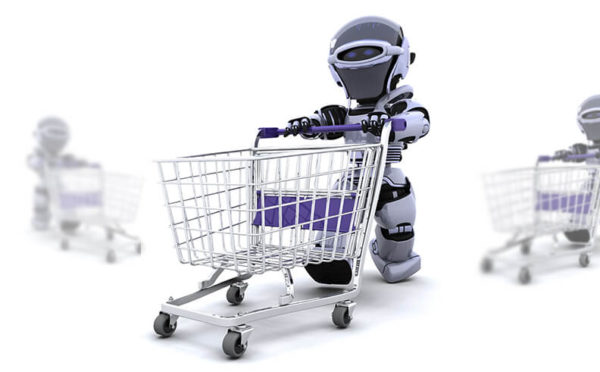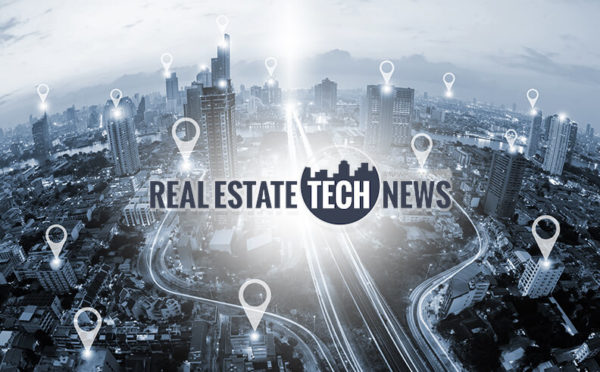
The top 5 commercial real estate mistakes with demographics
As a real estate broker, knowing when to use data is tough. How much should you rely on what the demographics tell you? Or how much weight should you place on the painfully obvious vagrancy problem when you drive through the trade area?

SiteZeus to add new verticals, expand R&D with raise
SiteZeus, a Tampa, Florida-based technology startup is looking to expand R&D and add new vertical expertise with funds it raised this summer, said Keenan Baldwin, co-CEO.

Why is it that the commercial real estate industry is slow to adapt to new technologies?
Undeniable – the commercial real estate industry is painfully slow to adapt to new technology! I have witnessed hundreds of companies refer to an excel document as a sophisticated piece of “technology.” The major drivers for this lag in innovation revolve around an outdated rationale and a general lack of forward thinking. The idea that value can only be extracted from hard assets or tangible assets is being challenged now more than ever.

These smart retail robots are kicking ass and taking names
In case you haven’t noticed, big-data is now quite literally driving industry and causing major disruptions along the way. Uber has all but obviated the taxi industry, and Air Bnb is Uber’s hotel counterpart; both companies rely on highly automated, data-driven platforms that are shifting economy and infrastructure in major ways. And while these integrations have not been totally seamless, it’s clear that the world is ready for some fresh takes on antiquated industries.

SiteZeus wants To make location search faster, cheaper and easier
Real estate is a laggard when it comes to adapting to change, says SiteZeus EVP of product development Chuck Cooper. He arrived at this conclusion after more than 30 years of developing software for real estate and other industries. Now, his Tampa, FL-based company, founded by brothers Hannibal and Keenan Baldwin in 2014, wants to help industry players find ideal locations to choose from by crunching large amounts of statistical data.

Artificial intelligence beats a path to e-commerce
Artificial Intelligence (AI) has made its way into many aspects of our lives, even into toys for kids like Anki’s Cozmo which resembles a roboticized Ewok. But as things go, AI isn’t just for devices, it’s made and continues to make it’s way into eCommerce and is out there working to determine what to sell to you, how you shop and ensure you have a good shopping experience.

How using big data and technology can drive retail traffic
As consumers shift their apparel, beauty and accessories purchases to online, store traffic continues to decline. In August, year-over-year instore traffic dropped 6.6 percent, according to RetailNext. For fashion apparel retailers who may not have a strong e-commerce presence, the ongoing drop in traffic is a paramount concern — especially heading in the fall the holiday shopping season.

Artificial intelligence finds a home in the restaurant industry
Every seasoned restaurant owner or manager knows that where there is growth, once stood a significant risk. No booming business entered the game, be it opening a new location, a menu makeover, or a completely new brand, with 100 percent confidence.

Pokémon and iBeacons: The new, friendly monsters of location intelligence
Whether you’re an eye-roller or an enthusiastic participant, Pokémon Go is a game that’s difficult to ignore. It does have a lot going for it: nostalgic yet advanced, simple but strategic, and although played on phones, the game incorporates the user’s surroundings to an extent we haven’t really seen before. The “Go” sets the game apart from all others that have come before, Pokémon or not: you simply can’t catch Pokémon while sitting still.

Why your fast-casual brand can’t ignore artificial intelligence
In a world stunted by a powerful recession, thousands of businesses closed their doors while a small, Boston-based burrito chain was getting ready to take their brand to the national level. Despite the failing economy, Boloco was thriving in its existing locations.

The robot army every restaurant should enlist
The experimentally determined angle at which you flick your wrist to achieve the perfect toss of the contents in the pan. That slight brownish color that indicates a delightful crisp. The unmistakable shine of freshly polished silver. What does a robot know about any of these nuances in the art of food service? Probably very little. The magic of the restaurant industry lies in the irreplaceable human aspects of creation and service. So how do robots fit in in an industry so human?

The rise of location intelligence
You’ve heard it before. You know it by heart. Location, location location: this triplicate is informally known as the golden rule of property-owning. Where a building stands absolutely defines the success of its endeavors within. The mantra, though simplistic, is tried and true.
